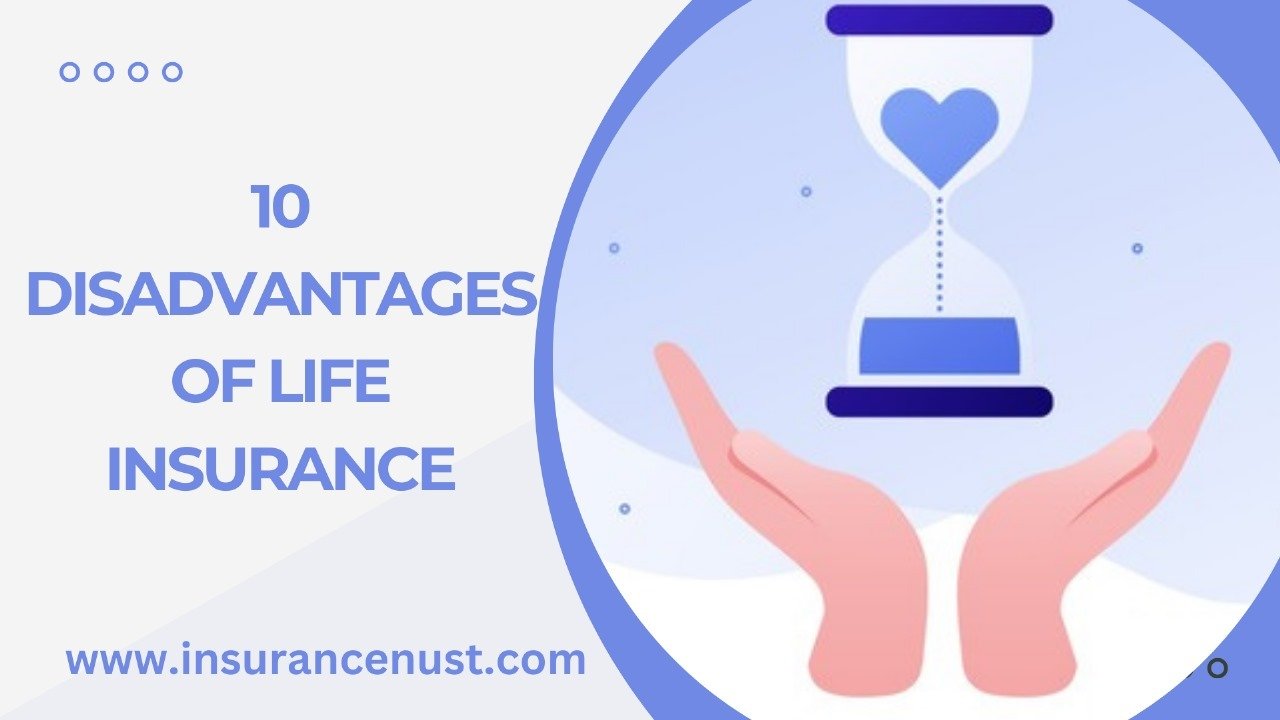Life insurance is usually portrayed as a must-have financial item providing assurance and financial safety for your family members. But, just like every instrument in the financial market is, it has certain disadvantages. Being aware of these issues can benefit you make a better well-informed decision regarding the right life insurance for you.
High Costs

One of the major negatives to life insurance is its cost. It can be costly to purchase premiums particularly for whole life or universal life insurance. Although term life insurance is typically less expensive, it is a substantial expense particularly for seniors or people with medical issues. It is crucial to evaluate your costs against benefits for determining if it’s an worth the investment in your budget.
Complexity of Policies
Life insurance policies are very intricate. There are many types of policies such as term life, total life, and universal that each have their particular set of rules as well as conditions and benefits. The fine print and jargon could be confusing, which makes it challenging for a typical user to grasp what they’re signing up to. This can cause miscommunication and costly mistakes.
Exclusions and Limitations
Each life insurance policy includes restrictions and exclusions that could influence the coverage. The most frequent exclusions are death from suicide within an elapsed time or deaths that are related to risky events, as well as death that occurs during war areas. Exclusions like these can result in those who have purchased the policy and/or their beneficiaries out of protection they’d like to have which could lead to an economic hardship.
Lengthy and Intricate Application Process
The process of applying for life insurance is difficult to do. The process typically requires you to fill with detailed questions about your lifestyle, health as well as your family’s medical background. Some policies need the completion of a medical exam. It can be lengthy and invasive, and any irregularities or problems discovered in the process of applying for insurance can cause higher costs or even denial of the coverage.
Lack of Flexibility
Life insurance policies are often bundle with strict clauses and terms. After you have locked in the policy, changing it are difficult and expensive. The lack of flexibility could create problems when your situation with regard to finances or insurance demands change over the course of. There is a chance that you will be stuck in a plan that is no longer suited to the needs of your business.
Potential for Policy Lapses
Life insurance policies require periodic monthly premium payments in order to keep them active. If you fail to pay and your insurance policy is deemed to be insolvent, it could be cancelled and you’ll lose insurance coverage. Some policies allow grace periods or the option to reinstate a defunct policy, it is usually with more charges and complexities.
Limited Payouts
The life insurance payouts aren’t necessarily as easy as they may appear. There may be circumstances in that payouts can be limited or completely denied. If, for instance, the person who is insure passes away due to any reason not listed, beneficiaries might receive a less payment or even none. This could have a significant impact on the level of support that your beloved relatives were anticipating.
Questionable Investment Value
Numerous life insurance plans, especially universal and whole life are advertise as tools for investing. The returns on investment (ROI) of these policies tends to be lower when in comparison with other instruments for investing. Costs and charges that come to these policies may affect the cash value and make them less appealing in terms of investment.
Tax Complications
Life insurance offers tax benefits such as tax-free death benefits, as well as tax-deferred capital growth but it comes with possible tax issues. If, for instance, you take a larger amount of money than you are paid, any excess could be tax-deductible. Furthermore, the tax implications of surrenders and loans are often complex and require meticulous planning and assistance from an experienced tax competent.
Influence of Health Conditions
Your health can play a major factor in the price and accessibility in life insurance. People with pre-existing health ailments or with an history of serious illness are often subject to higher rates or could be refuse coverage completely. This makes it difficult for some people to secure cheap life insurance.
Possibility of Being Underinsured
It’s simple to make a mistake when calculating the amount of life insurance coverage you will require. If you underestimate your insurance requirements, the beneficiaries may not get sufficient money to cover their costs. This could be a problem when you rely in large part on life insurance to provide the purpose of income replacement.
Dependency on the Insurer’s Financial Health
If you buy the life insurance policy you’re placing your trust in the financial stability of the company to be able to cover any claims that may arise. In the event that the insurance company encounters problems with its finances or becomes into bankruptcy, the policy may be in danger. There are some protections available, including the state-guaranty association, they cannot be for sure and could not fully cover the worth of the policy.
Surrender Charges
If you opt to terminate your life insurance plan then you could be subject to the cost of surrender. The charges can be significant particularly during the first period of the insurance policy. In the event of a surrender, it could cause a significant loss in financial terms in particular if you’ve already had to pay fees for a lengthy period.
Conclusion
Though life insurance could help in providing invaluable financial protection to your family members but it is essential to know the potential drawbacks. Costs, complexity of exclusions and absence of flexibility are but the main issues you may confront. When you understand these issues so that you are able to take a better decision and pick the appropriate insurance policy to meet your requirements.
FAQs
What are some of the hidden cost of Life insurance?
Life insurance policies with hidden costs could include charges for policy administration, surrender fees and the costs associated with additional riders. These could significantly affect the cost total of the insurance policy.
How do I modify my insurance for life?
Although you are able to make modifications to your life insurance policy for example, adjusting coverage levels or including riders, these modifications can be complex and cause higher rates or additional charges.
How can health-related conditions influence the life insurance policy?
Medical conditions could result in increased premiums or the refusal of insurance coverage. Insurance companies assess the risk of your health when you apply for insurance Pre-existing health conditions may affect your insurance eligibility in a significant way.
What is the consequence if I fail to make the payment?
A missed payment could cause the life insurance policy you have purchased to expire, which means you are no longer covered. Certain policies allow grace periods for late payments. However, re-establishing an expired policy is complicated and costly.
There are alternative options for Life insurance?
There are alternatives to life insurance comprise self-insurance with investments and savings Annuities, as well as other financial instruments that give similar benefits but with none negatives of life insurance.




